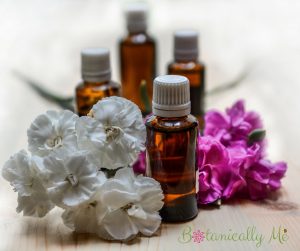What Is an Aromatherapy Consultation?
 Perhaps your introduction to essential oils was through an aromatherapy oils diffuser. Somewhere, either at a party or in a health food store, you smelled lavender or lemon or peppermint and decided you wanted your home to smell like that. Diffusers are a popular way to use essential oils for sure, but certainly not the only way.
Perhaps your introduction to essential oils was through an aromatherapy oils diffuser. Somewhere, either at a party or in a health food store, you smelled lavender or lemon or peppermint and decided you wanted your home to smell like that. Diffusers are a popular way to use essential oils for sure, but certainly not the only way.
Discovering Aromatherapy Uses
Essential oils can play a role in your overall wellness protocol. If you’re not sure what else to do in addition to diffusing, you may want to consider a consultation appointment with an aromatherapy practitioner. A certified aromatherapist can help you figure out other ways to incorporate essential oils in your life— and will do it in a way that is safe. Trained aromatherapists understand how to help clients navigate the multitude of information that’s on the Internet and shared at parties, including what’s safe and what isn’t.
What an Aromatherapy Consultation Includes
First of all, an aromatherapist should be clear about what he or she can’t do. Aromatherapists aren’t doctors. We can’t heal, prescribe, or treat. We don’t have patients; we have clients.
What we can do is look at how essential oils have been used historically and how they can be part of a wellness program today.
Your aromatherapy appointment will probably include the following:
- Filling out an aromatherapy consultation form. Your aromatherapist should have you record your medical history. Be sure to be honest with any health conditions you have and any medications you take. This is important because some essential oils can react with meds or be contraindicated for certain health conditions. Be sure to note if your are pregnant (or trying to become) or nursing.
- Deciding on purpose of appointment. Do you want to improve physical health? Mental health? Or are you more interested in beauty products? Mention any problems or conditions you would like to address. For example, is stress a problem? Or perhaps you would like a chemical-free natural perfume.
- Picking a focus. In my aromatherapy business, once we’ve talked through all their concerns, I like to have my clients decide what is the most important item on their priority list and start there. Trying to address too many items at once muddles things up, and it’s hard to know what is helping what. When you’re working on one thing at a time, it becomes obvious if the aromatherapy protocol is effective.
- Choosing a protocol to try. Usually, your aromatherapist will present several possible essential oil options, and you choose what best resonates with you. Be an active part of your wellness plan.
 When you are invested, you are more likely to follow through on the plan.
When you are invested, you are more likely to follow through on the plan. - Be honest in the follow-up. Be sure to let your aromatherapist know any results you see from your protocol, good, bad, or indifferent. Generally, natural products take longer to work than medicines because they are working to help balance the body, although some things may have a quicker response.
- Pick additional areas to work on. Once you have addressed your most important issue, decide if you would like to tackle another area.
Taking the step to make making an appointment with an aromatherapy practitioner can give you another tool in your quest for health and wellness for you and your family. I offer consultations in my Botanically Me aromatherapy business in Indiana and also offer aromatherapy workshops if you’d like to try a fun, informative make ‘n take event. Contact me today for more information.
